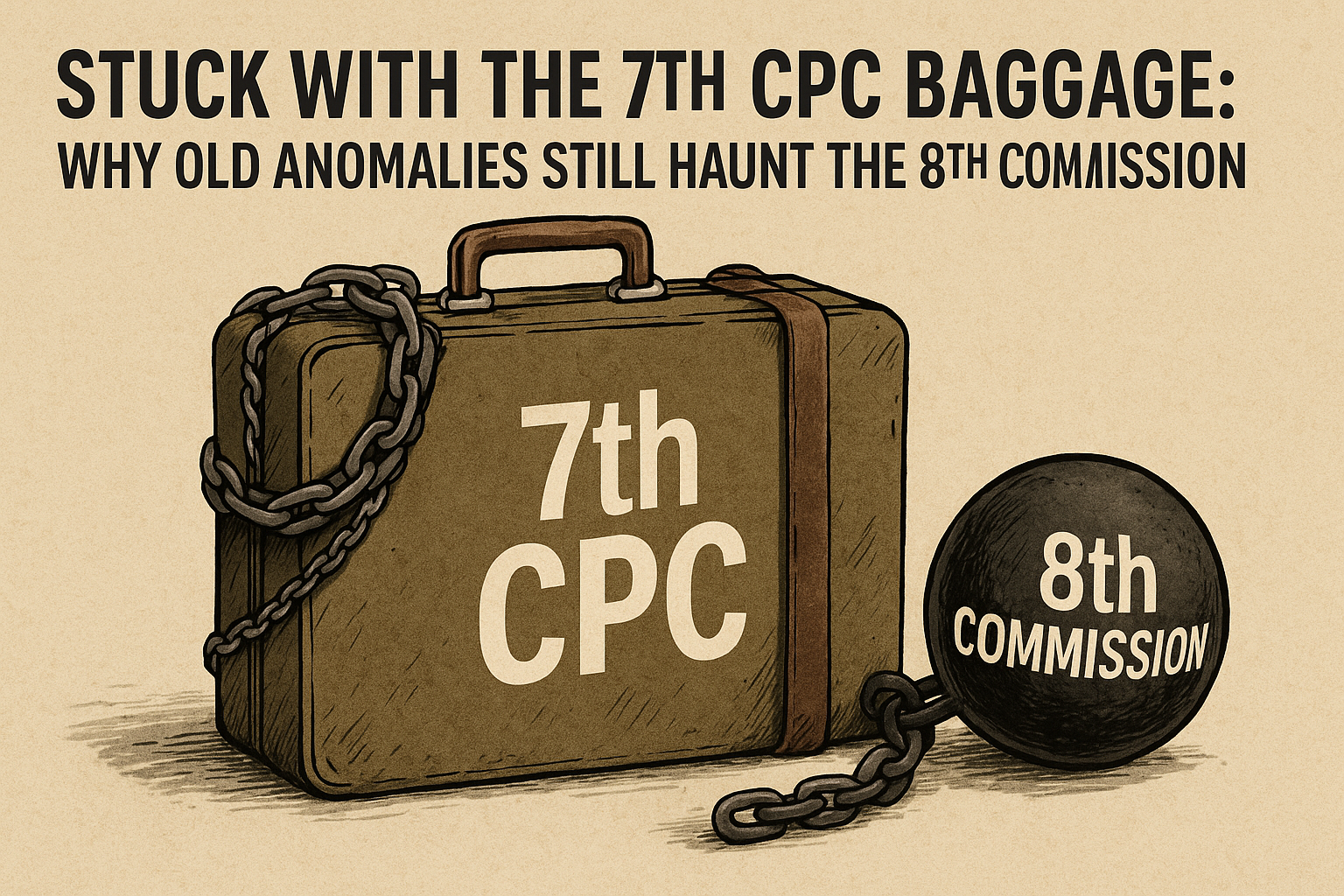The Eighth Central Pay Commission is expected to chart the financial future of India’s government servants, including those in uniform. Yet, even as deliberations begin, the ghosts of the Seventh Pay Commission linger unresolved. For the Armed Forces, these anomalies are not just accounting disputes—they are matters of parity, morale, and national security.
The Weight of Unfinished Business
The Seventh Central Pay Commission was submitted in 2015 and implemented in 2016–17. It recommended sweeping changes to allowances, including the replacement of “risk” categories with a structured Risk and Hardship (R&H) matrix. It also noted the continuing exclusion of the Armed Forces from Non-Functional Upgradation (NFU), warning that such denial undermined “status and morale.”
Despite those observations, many disputes remained open. Disability pensions, allowances, and promotional parity have all been subject to litigation. The most prominent is the NFU anomaly, which has repeatedly been challenged before the Armed Forces Tribunal (AFT) and the Supreme Court. Yet, rather than resolve the matter, the government has chosen to fight every case.
Disability Pensions and the Entitlement Rules
One of the most significant developments since the Seventh CPC is the Entitlement Rules (ER) 2023. These rules, notified prospectively from September 2023, reshaped the criteria for attributing death or disability to military service. The Ministry of Defence clarified that they would apply only to new cases, not retroactively to past pensioners.
Even so, veterans’ organisations have expressed unease, fearing the changes will increase rejections in the future. Courts, too, have begun to see fresh petitions testing how ER 2023 is interpreted in practice. The issue reflects a larger problem: instead of certainty, successive notifications have generated confusion and litigation.
Endless Litigation, Judicial Fatigue
By 2025, more than 3,000 service-related appeals by the Ministry of Defence were pending before the Supreme Court. In July this year, the Court criticised the government’s approach, remarking that “security personnel should not be dragged into unnecessary litigation” and urging a policy-level solution instead of attritional court battles.
This is not the first time the judiciary has raised the alarm. High Courts have also noted that many of these disputes—whether on pensions, promotions, or pay scales—could have been settled administratively. The persistence of anomalies from the Seventh CPC ensures that the Eighth will begin under the shadow of unresolved grievances.
The Governance Contradiction
The paradox is striking. The very purpose of pay commissions is to provide a clean slate every decade: to revise structures, resolve anomalies, and set a fresh benchmark. Yet for the Armed Forces, the Seventh CPC’s legacy is one of unfinished business.
NFU exclusion remains the clearest example. CAPFs were granted the benefit after Delhi High Court and Supreme Court rulings in 2019. The Armed Forces, however, were left outside, despite facing steeper pyramids and earlier retirements. Every petition filed since has been met with resistance, draining public funds and morale alike.
Allowances tell a similar story. The government accepted the Seventh CPC’s recommendation to raise Siachen allowance to ₹42,500 for officers and ₹30,000 for JCOs and ORs, but many other R&H differentials between the Armed Forces and CAPFs continue to rankle. Recognition of extreme hardship in one case does not always translate across comparable situations.
Why the 8th CPC Cannot Afford Delay
The Eighth CPC is already under pressure to respond to inflation, rising cost of living, and widening disparities between cadres. But unless it addresses the anomalies left by its predecessor, especially for the Armed Forces, the exercise risks repeating history.
Veterans and serving officers alike have consistently argued that these are not demands for privilege but for parity. When officers see their civilian and CAPF counterparts advance automatically in pay and benefits while they remain excluded, it corrodes trust in the system.
The Standing Committee on Defence has repeatedly highlighted these concerns, underlining the need for equity in pay and pensions. The Seventh CPC’s warnings about morale and cohesion still ring true a decade later.
Closing the Loop
The 8th CPC cannot start with a blank page while the 7th remains unfinished. NFU exclusion, unresolved pension anomalies, and uneven allowance structures continue to erode confidence among those who serve in uniform. The Supreme Court has already called for policy intervention to end the endless cycle of appeals and counter-appeals.
It is time to break the loop. The Armed Forces ask not for more than others, but for fairness in a system that too often privileges bureaucratic convenience over military dignity. To carry the 7th CPC’s baggage into the 8th would not only betray soldiers’ trust, it would weaken the very institution on which the Republic depends.

